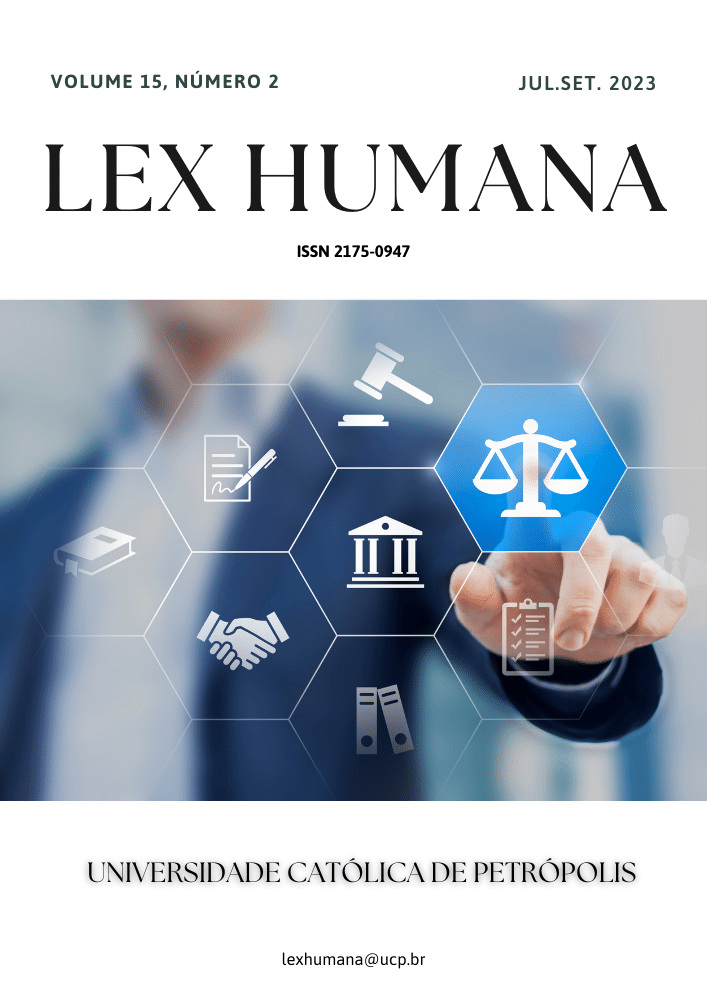Abstract
Abroad, the criminology of war is one of the most promising and relevant topics for scientific research. We believe that if we can talk about the criminology of war, then the criminology of peace should also be studied. Perhaps it is in the key of "war and peace" that certain aspects of criminotheology should be developed. In writing, an interdisciplinary method of research was used, due to which it was possible to highlight the most diverse aspects of the problem under study, namely, historical, psychological, economic, political, economic, and military sciences, which will give many useful results. At the same time, it should be noted that the military sphere is not the subject of special research by criminologists. Therefore, from the standpoint of the current Russian-Ukrainian war, such an initiative is extremely important. Raising the morale of the army through the writing of monographs and basic research is currently very important in terms of the historical past, studying foreign best experience, and modern warfare practices. Also, the scientometric cross-section will help to carry out a comprehensive analysis of knowledge in various fields of human knowledge in relation to the outlined area of research; secondly, in this way, it is possible to formulate the ideology, criminological and criminal law policy (doctrine) of the state in terms of building new meanings of these blocks of research, depending on the circumstances and factors of the need to criminalize and decriminalize socially illegal acts. The military sphere needs constant updating, which is now increasingly observed in scientific journals and news columns. The importance of practice in the life of each person is evidenced by the Japanese principle that "one cannot hold the position of Minister of Communications without being a postman and without passing through all levels of the power hierarchy". Perhaps we should see the war, just as Lina Kostenko often went to Chernobyl to be alone and write immortal poetry.
References
Dromin, V.M. (2022). Criminology of war: methodological principles. Study of the criminogenic situation in Ukraine and forecasting its further dynamics (influence of military factors): materials of the scientific and practical round table (Kyiv, September 07, 2022). Kyiv: State Research Institute of the Ministry of Internal Affairs of Ukraine; Kharkiv: Machulin. Pp.16–19.
Heorhadze, O. A, Pampukha, I. V, Shevchuk, V. V, Piekhota, S. H., & Chaikovska, O. Ye. (2022). Methodical approach to assessing the effectiveness of individual training of officers of scientific and pedagogical staff in higher military educational institutions. Collection of scientific papers of the Military Institute of Taras Shevchenko National University of Kyiv, 76, 130-139.
Khmiliar, O., & Apalkov, V. (2022). Psychology of the life of a serviceman after captivity. Bulletin of Taras Shevchenko National University of Kyiv. Military Special Sciences, 2, 54-59.
Roadmap for Improving Language Training in the Armed Forces of Ukraine (2021-2025). Ministry of Defense of Ukraine. 2021. https://www.mil.gov.ua/content/education/doroznya_karta_2021.pdf
Rome Ministerial Communiqué (2020). Retrieved from: http://www.ehea.info/Upload/Rome_Ministerial_Communique.pdf.
Ryzhykov, V., Horiacheva, K., & Kravchenko, O. (2022). Transfer of acquired competencies in the scientific school of a military scientific unit (organization). Bulletin of Taras Shevchenko National University of Kyiv. Military Special Sciences., 2, 12-16.
Safin, O., & Mas, N. (2022). Influence of socio-psychological characteristics of a serviceman's personality on his perception of risk and psychological readiness for it. Bulletin of Taras Shevchenko National University of Kyiv. Military Special Sciences, 2, 50-53.
Sameliuk, A. (2022). Study of motivation to learn a foreign language among cadets of higher military educational institutions (military educational units of higher education institutions). Bulletin of Taras Shevchenko National University of Kyiv. Military Special Sciences, 2, 17-23.
Syrotenko, A., Vitchenko, A., Osodlo, V., & Aleshchenko, V. (2020). The concept of development of military and humanitarian education in Ukraine. Science and Defense, 4, 53-57.
Tchobo, D. L. R. (2022). Potential international crimes in Ukraine: should atrocities in Bucha be classified as genocide, war crimes, or crimes against humanity? Law and Safety, 85(2), 13-20. https://doi.org/10.32631/pb.2022.2.01
Tkachenko, S. O., & Diadin, A. S. (2022). Public safety in the conditions of martial law and mental warfare. Law and Safety, 86(3), 128-139. https://doi.org/10.32631/pb.2022.3.11
Zvonenko, O., & Buryi, S. (2022). Criminological characteristics and prevention of suicide among military personnel. Bulletin of Taras Shevchenko National University of Kyiv. Military Special Sciences, 2, 87-90.

This work is licensed under a Creative Commons Attribution-NonCommercial-NoDerivatives 4.0 International License.
Copyright (c) 2023 Lex Humana (ISSN 2175-0947)
